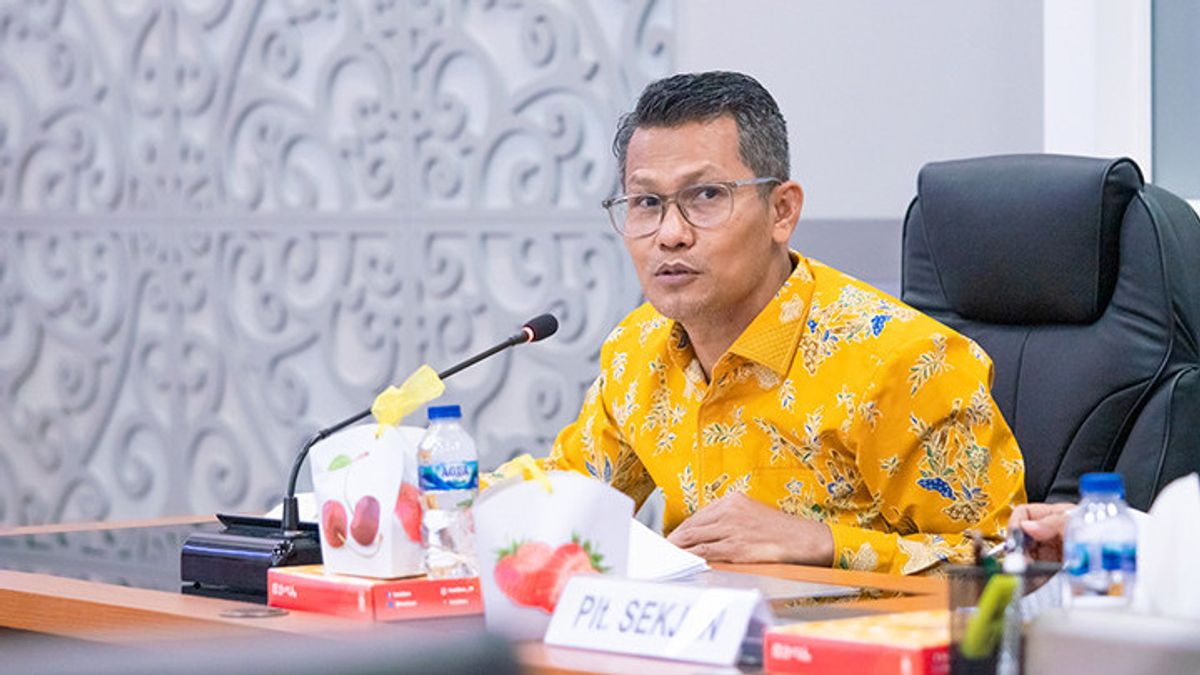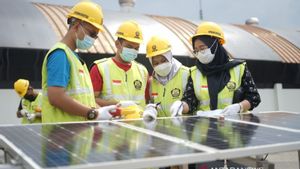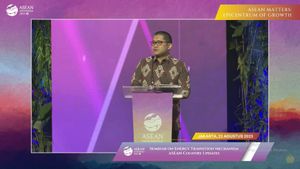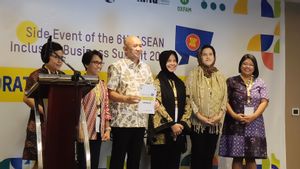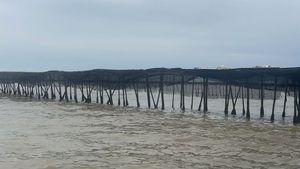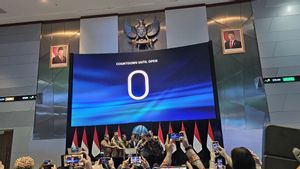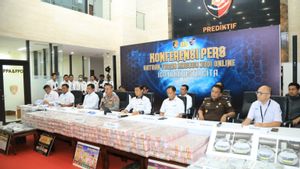BALI - The Ministry of Industry (Kemenperin) said that the industrial sector has carried out emission control and met the provisions for emission quality standards as regulated by the Ministry of Environment and Forestry (KLHK).
"Industrial players have been orderly in fulfilling emission quality standards in accordance with applicable regulations," said Ministry of Industry spokesman Febri Hendri Antoni Arif in his official statement, quoted Wednesday, August 23.
In addition to being required to meet the standard emission quality provisions, industrial companies are also committed to managing emissions through several efforts, namely installing air pollution control tools, having officers in charge of air pollution control and certified air pollution control installation operators, as well as monitoring of emissions produced manually and continuously which are then reported in real time to the Ministry of Environment and Forestry.
Febri said, to reduce air pollution in Jabodetabek, it is necessary to synergize and collaborate between stakeholders, both the central government, local governments, as well as industry players and the community.
The Ministry of Industry, in accordance with its duties and functions, continues to provide guidance to the industry through a green industry approach, including the preparation and application of green industry standards, assistance in the application of energy efficiency and management, increasing the capacity of industrial human resources in emission control, and providing equipment assistance that supports supervision of industrial sector emission control.
According to Febri, the industry certainly pays great attention to environmental management and fulfills obligations in accordance with applicable regulations, considering that sanctions imposed on negligence can certainly have an impact on the sustainability of production, industrial competitiveness, economic turnover, and demands of green-oriented domestic and global markets..
This is also in line with the goals of the green industry which are regulated through Law Number 3 of 2014 concerning Industry.
Green Industry certification that refers to Green Industry Standards (SIH) includes technical requirements and management. In technical requirements, aspects of waste management and emissions are set as one that must be met by industrial companies.
Aspects of waste and emissions management regulate the existence of liquid waste management facilities for environmental quality standards, exhaust and air gas emissions management facilities, as well as fulfillment of exhaust, ambient air, and environmental disruption emissions parameters.
"This means that industrial companies that have implemented Green Industry Certification will certainly produce exhaust emissions that meet environmental quality standards (BML) in accordance with the provisions of the applicable laws and regulations," said Febri.
To control emissions from burning fossil fuels, the industrial sector is currently reducing the use of fossil fuels through efforts to transition fossil fuel use to the use of new and renewable energy (EBT), such as utilization of biomass and installation of solar panels.
SEE ALSO:
The use of EBT is expected to reduce exhaust and particulate emissions, and can encourage efforts to reduce greenhouse gas emissions to achieve the Net Zero Emission (NZE) 2060 target.
"Currently, the massive use of renewable energy cannot be carried out in the industry because of several challenges, namely the continuity of biomasa energy sources, harmonization of technical regulations, and growth of the renewable energy product market," said Febri.
The contribution of the industrial sector to Indonesia's commitment to environmental conservation and climate change mitigation is trying to be achieved through three main components, namely reducing carbon footprint through downstream industry and stopping exports of raw materials of a number of commodities, as well as creating industrial downstream for export of finished or semi-finished goods.
Then, industrial transformation towards digitalization to encourage business units to enter the digital platform. Furthermore, green economy development is through the development of green industrial areas, the EBT ecosystem, and the production of green products.
The English, Chinese, Japanese, Arabic, and French versions are automatically generated by the AI. So there may still be inaccuracies in translating, please always see Indonesian as our main language. (system supported by DigitalSiber.id)
